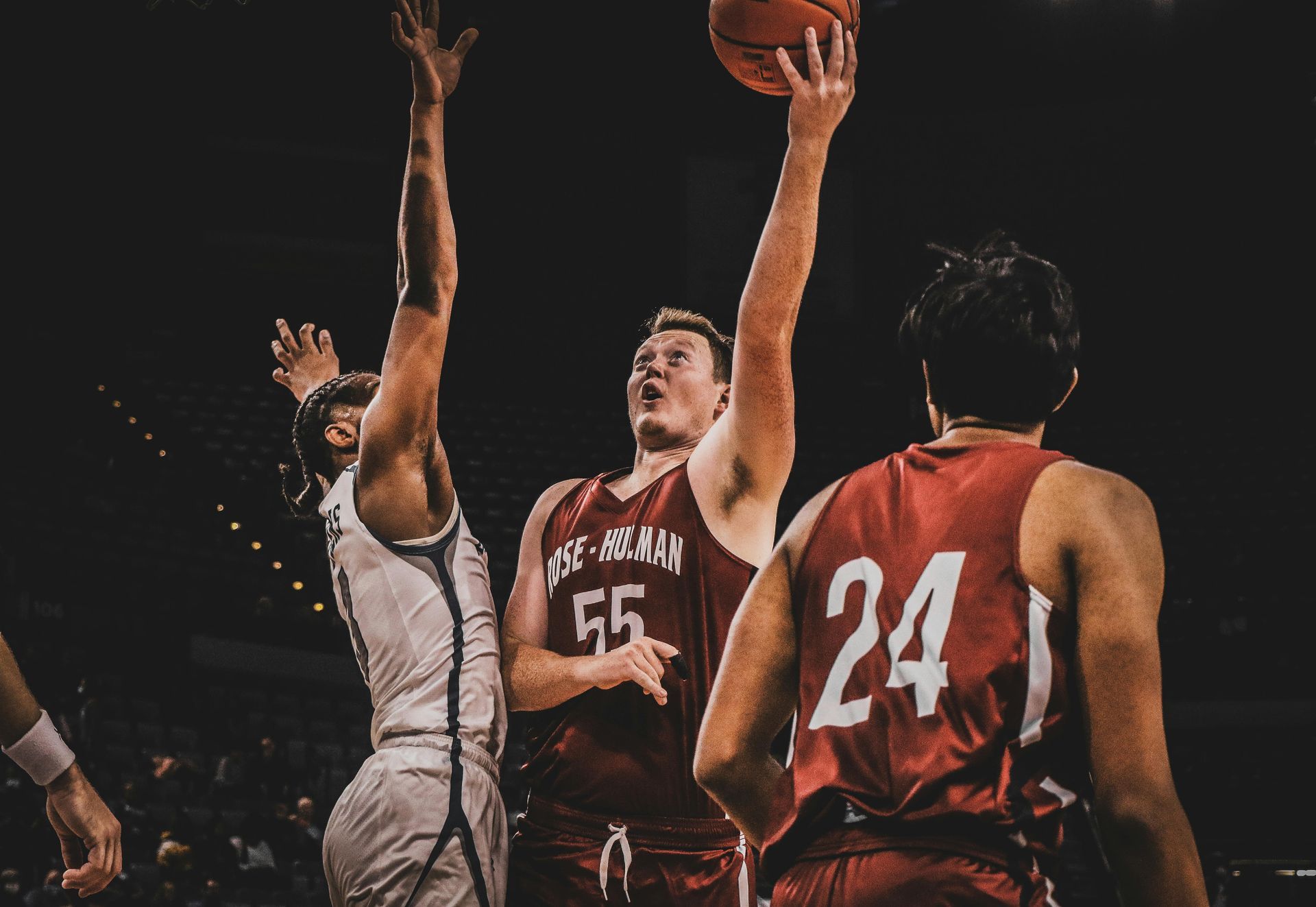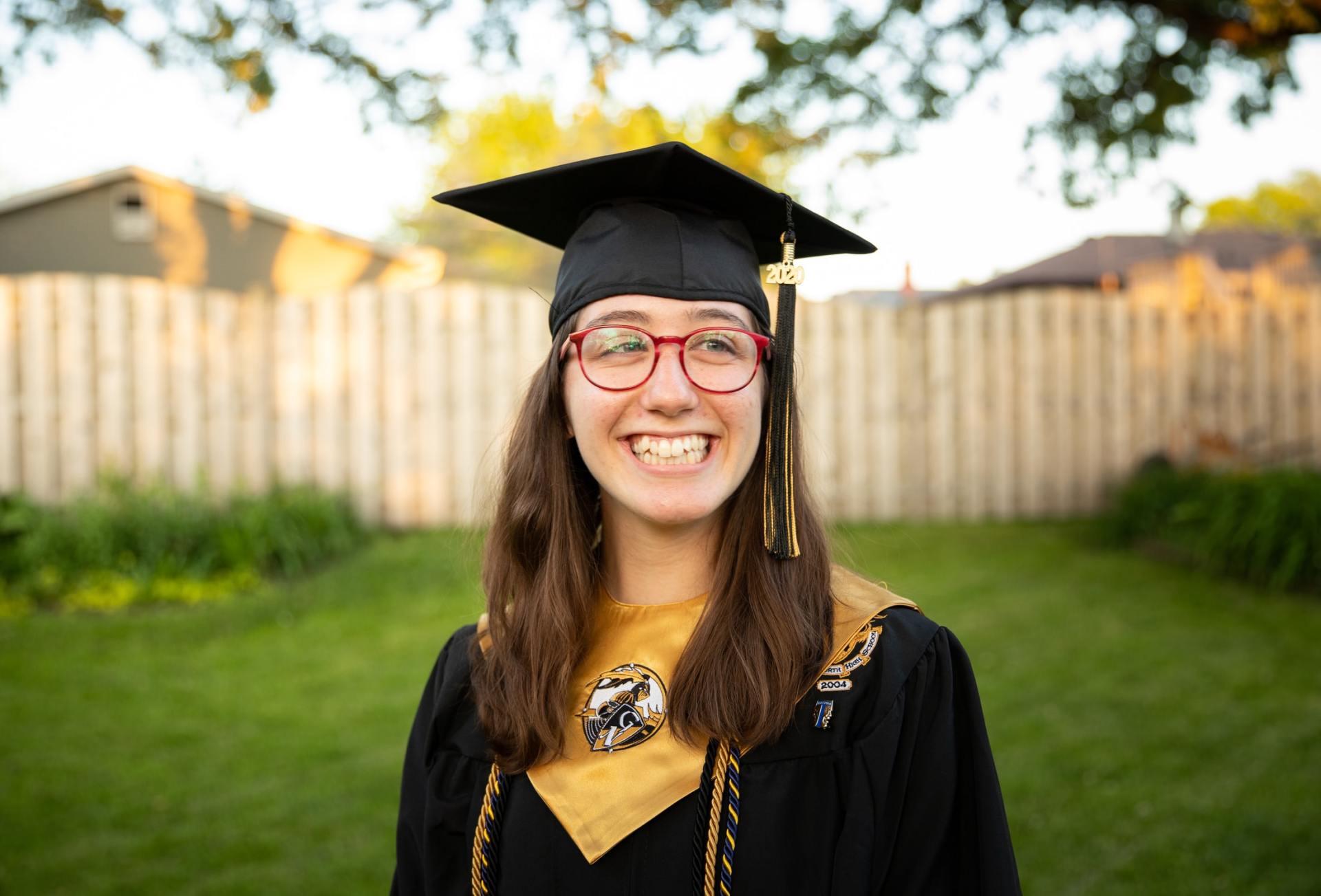The F-1 Student Visa
Joseph Lennarz • November 20, 2025
Once you have connected with a college program, have been admitted to the school, and deemed eligible to compete athletically, you will need to secure an F-1 student visa in order to actually attend your new college and begin your time as a student athlete. The first step in the visa process is to receive your Form I-20 from the college program you will be attending.
The Form I-20 is one of the most important documents you will receive as an international student-athlete coming to the United States. The I-20 serves as your official proof that you are eligible to apply for an F-1 student visa, and it includes key details about your academic program, school, and financial support. On the I-20 you will see the total cost of attending your school for one year, and also the amount of scholarship that you have been awarded by the school. If your scholarship covers the full cost of attendance, the I-20 will reflect this and you will not need to provide any additional proof of financial support.
If you don’t receive a scholarship, or your scholarship doesn’t cover the full cost of attendance, you will need to show that you can cover the remaining amount by other means. The most common ways of doing this are by providing proof of your own funds or providing an Affidavit of Financial Support from a family member or friend who is willing to guarantee you access to the amount necessary. Other ways of showing sufficient funding include grants from government entities or non profit organizations, and loans from financial institutions. The school you are applying to should be able to provide you with the forms needed to show funding by whichever of these methods you will use.
Once you have arranged the funding necessary to cover the cost of attendance listed on your I-20, you will need to pay your SEVIS fee and schedule your visa interview at the US Consulate.
The SEVIS fee, or Form I-901 fee, is a one-time payment of $350 used to fund the Student and Exchange Visitor Program (SEVP). While it is possible to pay the fee by mail or Western Union, it is recommended to do so online at https://www.fmjfee.com/, using the SEVIS number issued to you on your I-20. Remember to pay the fee at least three days before your visa interview.
Scheduling your visa interview requires four steps. First you must fill out Form DS160 on the Consular Electronic Application Center website (https://ceac.state.gov/). Think of Form DS160 as a general information form that collects background information on every visa applicant. You will be asked to submit information about your background, your family, your employment history and educational history, and details about your planned trip to the U.S. Make sure to be honest and thorough in the information you provide. Once you submit your DS160, you will receive a confirmation page that includes your DS160 Confirmation Number, which you will use to book your appointment and also bring to your interview.
Next, you must create an account for yourself on the website of the U.S. consulate at which you will be scheduling your interview. Keep in mind, you can only interview in the country of your nationality or residence. This means if you are not a citizen of the country you are currently residing in and will be interviewing in, you will need to bring proof of lawful residency to your interview. You will be asked to provide information such as your full legal name, your passport number, and your DS160 confirmation number which will appear on you
Once you have created an account, you can pay your visa fee and book your interview. Each consulate is different; some will allow you to pay the fee instantly online using a credit card, some will require you to print a payment form and bring it to a local bank where you will pay in cash. Wait times for F1 visas can be long at certain consulates, so try to book your interview as quickly as possible. If the earliest appointment available is not until after your academic program has begun, you can apply for an emergency expedited appointment through the consulate’s website. It is strongly recommended to include support documentation, such as a letter from your new coach or school athletic director explaining that you’ve been offered a scholarship to their institution and it is critical to the program that you arrive in time for the date listed on your I-20 as your program start date. On most consular websites, you can also rebook your appointment at least once, and earlier appointments will often show up due to cancellations or other causes- so it may be worth your time to frequently check the consulate’s booking calendar in case you can grab an earlier appointment that would allow you to receive your visa and fly over in time for your program start date.
Finally, you will need to attend your interview. You will need to bring your passport, your DS160 Confirmation Page, your interview appointment confirmation page, two passport photos (2” x 2” photos you can generally have produced at a pharmacy or photo studio), your Form I-20, and any additional supporting documents such as an Affidavit of Financial Support or an emergency expedite request letter from your school if you needed to make such a request. Be sure to arrive early, and be prepared for the consulate to prohibit cellphones or other electronic devices inside. It is important to know as much as possible about the school’s athletic and academic programs you intend to enroll in, and remember that F1 student visas are a type of non-immigrant visa. This means you should be prepared to demonstrate your intent to return to your home country upon the conclusion of your academic program. For example, this could mean articulating to the consular officer the type of employment in your home country your new academic degree will allow you to pursue once you have completed your program.
If your interview is successful, the consulate will take your passport and return it to you within a week or so with your F1 visa stamp inside. The visa stamp will be valid for the length of your program as specified in your Form I-20, allowing you to come and go from the U.S. during that period. As we will discuss in the next section, there are restrictions on what you can do while in the U.S. on an F1 visa, and other important parameters to keep in mind.
While the steps involved with securing an F1 visa may seem challenging, successfully applying for your visa and thus being able to come study and compete in the US for your chosen program can be an amazingly positive and life-changing experience for an international student-athlete.
Tips on this part of your student-athlete journey:
- Treat your visa interview like a job interview -> the consular officer has broad discretion to approve or deny the applicants they interview, so go to the effort to make a good impression. Dress nicely, present your support documents in an organized manner such as a folder or binder, and address the officer respectfully during your interview.
- Social Media matters -> Your DS160 form will ask you to list all of your social media accounts, and to make sure that they are set to public. You should assume that the consular officer will look at all of your social media posts, and will not take kindly to anything that might suggest you intend to act unlawfully or outside of the scope of your student visa while within the United States.
If you are a current or prospective student-athlete, or even a coach or administrator at a college program with questions about the F1 visa process, you should consult with an immigration attorney to ensure that you are aware of the latest rules and regulations governing the F1 visa process.
This blog is not intended to be legal advice and nothing here should be construed as establishing an attorney client relationship. Please schedule a consultation with an immigration attorney before acting on any information read here.
Joseph Lennarz
Similar Posts

For many talented athletes around the world, U.S. college athletics represent a remarkable opportunity to combine elite athletic competition with higher education. In sports such as basketball, soccer, track and field, and tennis, among others, hundreds of colleges and universities across the United States offer struct

The United States has long been a destination for the world’s most talented athletes—not only to compete at the highest level, but to access world-class training, coaching opportunities, and long-term career prospects. Whether on the field, in the ring, or across the chessboard, athletes from across the globe are finding immigration pathways that allow them to pursue their athletic and professional goals in the U.S. U.S. immigration law offers several visa and green card options designed specifically for individuals with extraordinary athletic talent. These include the P-1A visa for internationally recognized athletes, the O-1A visa for individuals of extraordinary ability, and the EB-1A immigrant petition, which can lead to permanent residency and ultimately, U.S. citizenship. The P-1A visa is commonly used by professional athletes coming to the U.S. to compete in a specific event or season. This applies not only to individual athletes but also to members of teams or clubs recognized internationally. It is widely used by soccer players, basketball players, MMA fighters, Brazilian Jiu-Jitsu competitors, and even elite chess players. Athletes must demonstrate a high level of international recognition and a record of performance in their sport. The O-1A visa is a strong option for coaches who demonstrate extraordinary ability, typically evidenced by championship titles, sustained winning records, or recognition as integral to their team’s success. To qualify, a coach must establish that their expertise places them among the small percentage of top professionals in their field. For athletes seeking permanent status in the U.S., the EB-1A immigrant petition —often referred to as the “extraordinary ability green card”—provides a direct path to lawful permanent residency. It requires clear documentation that the individual is among the very best in their sport and has achieved sustained national or international success. Unlike other green card categories, the EB-1A does not require employer sponsorship and can be self-petitioned. This has become a common path for MMA world champions, BJJ black belt medalists, Olympic athletes, and chess grandmasters—many of whom now represent the U.S. at the highest levels of international competition. It’s important to note that U.S. immigration law defines “athlete” broadly. Whether you are a professional football player in Europe, a sprinter from the Caribbean, a judoka, a gymnast, or a grandmaster in chess, your achievements may qualify under these categories if they are properly documented and presented. The key is a consistent record of excellence and recognition in your sport on a national or international scale. Our office specializes in these types of immigration matters. Whether you are an individual athlete looking to relocate or an organization seeking to bring international talent to your roster, we offer tailored legal strategies to support your goals. If you are exploring options to compete, train, or build your future in the U.S., we’re here to help you take the next step.

In a renewed wave of enforcement, U.S. Immigration and Customs Enforcement (ICE) has started sending formal alerts to certain F-1 students participating in Optional Practical Training (OPT), flagging that their records reflect over 90 days without any reported employment. These students have been advised to update their employment status in the Student and Exchange Visitor Information System (SEVIS) within 15 days. Failure to take timely corrective action may lead to the termination of the student's SEVIS record, effectively marking them as out of status, and may ultimately trigger removal proceedings. The notices are intended as a warning that students who do not comply with OPT reporting obligations are at risk of serious immigration consequences. Understanding OPT and Its Unemployment Limits Optional Practical Training (commonly referred to as “OPT”) is a work authorization benefit that allows eligible F-1 international students to gain hands-on experience in their field of study. Students may apply for pre-completion OPT (while still in school) or post-completion OPT (after graduation), typically for up to 12 months. Those with degrees in qualifying STEM fields may apply for an additional 24-month STEM OPT extension, giving them a total of 36 months of work authorization in the U.S. To maintain valid F-1 status while on OPT, students must remain actively employed in a position related to their field of study. The amount of time a student may remain in the United States while on OPT without being properly employed is capped at: 90 days during the standard 12-month post-completion OPT, and 150 days for those on the STEM OPT extension, which includes any days of unemployment accrued during the initial OPT period. These unemployment limits are cumulative and enforced strictly through SEVIS monitoring. What Should F-1 Students Do? If you are an F-1 student on OPT or STEM OPT and receive a warning or are unsure about your compliance status, act quickly: Contact your Designated School Official (DSO) immediately to review and, if necessary, update your SEVIS record. Ensure all employment is properly documented and reported through your school’s international office. Do not ignore warning notices, as failure to respond may lead to SEVIS termination and potentially the initiation of removal proceedings. It is also advisable to consult with a qualified immigration attorney to explore available options and understand how enforcement actions may affect your status or future immigration plans. If you received a notice or have questions about your F-1 status, our attorneys are here to help you take the right steps to protect your future in the United States. Contact us today to schedule a consultation.

According to the U.S. State Department, there has been a steady increase of F-1 visas issued for foreign students within the past year. In Fiscal Year 2022, 411,000 F-1 visas were issued, rising from the 358,000 F-1 visas issued in the 2021 Fiscal Year. These numbers have shown that F-1 student visas have recovered to pre-pandemic numbers. In 2020, only 111,000 F-1 student visas were issued due to pandemic uncertainty, border restrictions, embassy closures, and other barriers for students to study in the United States. The government expects these numbers to continue to rise even with rising rejection rates of F-1 applicants. In 2022, the U.S. State Department rejected 35% of all F-1 applicants in 2022, an increase from previous years. In addition, in May 2023, U.S. Immigration and Customs Enforcement terminated COVID-era guidance allowing F and M students to utilize more online classes toward a full course of study. The increasing F-1 student visas are a good sign for American employers because these individuals seek to study in the United States due to American excellence in wages, opportunity, diversity, and the encouragement of highly skilled workers. By assimilating in the United States through their education, they will be prepared to contribute to the United States workforce. For those who are interested in applying for the F-1 student visa, please contact our office for consultation and further information.

In recent weeks, the U.S. government has moved to terminate Temporary Protected Status (TPS) for multiple countries, sparking a wave of last-minute litigation and creating significant uncertainty for beneficiaries. This shift is having a profound impact on those who rely on TPS for lawful presence and work authorization in the United States. Across the country, federal courts have intervened to pause or block scheduled TPS terminations for several countries, including Burma (Myanmar), Ethiopia, Haiti, South Sudan, and Syria. In response to these court orders, USCIS has updated its webpages to indicate that TPS status and related Employment Authorization Documents (EADs) are extended for these populations. However, USCIS is intentionally not providing specific new end dates for EAD validity while the litigation remains in flux. The Department of Homeland Security (DHS) has prominently noted that it "vehemently disagrees" with these court orders and is actively working with the Department of Justice on next steps. This legal landscape remains highly unpredictable and varies drastically depending on the country of origin. For example, on February 9, 2026, the 9th Circuit Court of Appeals granted a stay allowing the government to proceed with the termination of TPS for Nicaragua, Honduras, and Nepal while the underlying legal challenges continue. Because of this ruling, the automatic extension of work authorization for these individuals has ended, and employers are now required to reverify the work authorization of affected employees, who must present alternative valid documentation to continue their employment. These rapid changes and the lack of clear end dates are causing complications beyond the workplace. Because driver's licenses often track the length of an individual's authorized stay, many DMVs are currently declining to issue or renew driver's licenses for impacted TPS populations. For employers, managing internal communications, avoiding onboarding errors, and navigating Form I-9 compliance has become increasingly complex. It is more important than ever to be well-prepared and proactive in monitoring these rapid changes. At Santos Lloyd Law Firm, P.C., our immigration attorneys are ready to guide you through this evolving process and ensure you are informed, and supported. Please contact us if you have questions or need assistance.

U.S. Citizenship and Immigration Services (USCIS) has announced a major change to the H-1B cap selection process. Under a final rule issued on December 29, 2025, USCIS will replace the long-standing random H-1B lottery with a wage-weighted selection system that favors higher-paid and more complex positions. The rule is scheduled to take effect on February 27, 2026 , just ahead of the fiscal year 2027 H-1B cap registration season, unless delayed by legal challenges. If implemented, USCIS is expected to release additional guidance explaining how employers must submit registrations under the revised process. This change marks one of the most significant reforms to the H-1B program in recent years. Up until 2025, all registrations were treated equally once the annual cap was reached. Under the new system, selection odds will be tied to wage levels based on the U.S. Department of Labor’s Occupational Employment and Wage Statistics data. All H-1B registrations will still be placed into a single selection pool, but registrations tied to higher wage levels will receive multiple entries into that pool, increasing their likelihood of selection. Lower wage levels will receive fewer entries, making selection less likely but not impossible. H-1B wage levels are not determined solely by salary. Each wage level reflects the complexity of the job, the level of responsibility involved, and the education and experience required . Entry-level positions involving routine duties and close supervision are generally classified at the lowest wage level, while positions requiring independent judgment, advanced skills, and significant responsibility fall into higher wage levels. The highest wage level is reserved for roles that involve expert knowledge, strategic decision-making, and substantial leadership or technical authority. USCIS is expected to closely scrutinize selected petitions to ensure that the wage level claimed during registration is supported by the job duties and salary offered in the petition. Any discrepancies between the registration and the petition may result in requests for evidence, denials, or enforcement action. With the elimination of the purely random lottery, employers should begin preparing early by carefully evaluating job descriptions, wage levels, and overall H-1B strategy. Accurate classification and thoughtful planning will be essential under this new wage-based selection system. If you are an employer considering H-1B sponsorship, or a foreign professional wondering whether your position may qualify under the new wage-based system, consulting with experienced immigration counsel is more important than ever. Santos Lloyd Law is actively advising clients on H-1B cap registrations and strategy under the new rules. To discuss your options or determine whether you may qualify, contact our office to schedule a consultation.

During the recent administration there has been an increase in issuance of Requests for Evidence for EB-1A petitions for those of Extraordinary Ability. A Request for Evidence is a request that is made by USCIS that should explain how the evidence is deficient in proving the criteria argued and what additional evidence needs to be provided by the applicant to meet the criteria. EB-1A petitions are already normally subject to higher scrutiny because their approval is the first step needed to apply for Lawful Permanent Residence or a green card. USCIS normally requires not just evidence but that the evidence be provided with context and information to show why it matters in a particular field. For example, if you were providing evidence of your membership in an organization that requires outstanding achievements of its members, just providing evidence of the membership is not enough. You must explain what that membership is and provide background information on the organization granting the membership. You also need to provide evidence on the criteria that is used to select the members, information on those who select the members to show that they are recognized experts, other documentation such as articles about the membership organization to show its importance, and any other relevant evidence and background information to show that the criteria is met. A request for evidence being issued prior to the current administration was not uncommon, but in the current climate it is more surprising to not receive a request for evidence for this type of case. It is important to remember that a request for evidence is not a denial. Depending on the validity of the information in the request and the substance some Requests for Evidence can be overcome, and the case be approved. It is important to carefully review the request and note if there are any errors in the content and application of the regulations by USCIS. If you have an attorney, you should work with them and make sure that you provide any evidence you think may be helpful. Although there is a deadline by which a response must be submitted, attention to detail and patience will go a long way when dealing with having to respond to a request for evidence. If you believe you may qualify for this type of visa, please feel free to contact our office.



